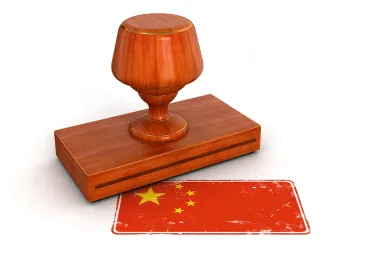State Administration for Market Regulation Issues Provisions on Prohibition of Unfair Competition on the Internet for Public Comment
国家市场监督管理总局对《禁止网络不正当竞争行为规定》征询意见
On Aug. 17, 2021, the State Administration for Market Regulation (SAMR) issued the Provisions on Prohibition of Unfair Competition on the Internet (Draft for Public Comment) (the Draft) and sought public comments until Sept. 15, 2021.
The Draft prohibits business operators from making false or misleading advertising about themselves or their products’ sales status, transaction information, operating data, and user evaluations, thereby deceiving and misleading consumers or other relevant parties. The Draft lists nine methods, such as “engaging in fake transactions or organizing false transactions,” that business operators must avoid, and it underscores that business operators must not use data, algorithms, or other technical means to commit traffic hijacking, interference, malicious incompatibility, and other acts by influencing user choices or otherwise hindering or damaging the normal operation of network products or services legally provided by other business operators. The Draft also indicates that the market regulatory authorities may appoint expert observers to assist in the investigation of new or difficult cases.
Refining the regulations for traditional unfair competition behaviors
Compared to the Anti-Unfair Competition Law, the Draft further specifies the circumstances that would be considered unfair competition on the internet and separates them into four categories: confusion, false advertising, commercial bribery, and business slander.
To address business slander, the Draft states that business operators must not damage the “business reputation and commodity reputation” of their competitors and prohibits the following acts:
-
organizing or instructing others to maliciously evaluate the goods of competitors in the name of consumers; or
-
using, organizing, or instructing others to maliciously disseminate false or misleading information through the internet; or
-
making false or misleading warnings to consumers, demand letters from lawyers or complaining letters, etc. for the commodity provided by competitors.
Additionally, the Draft defines “damaging the business reputation and commodity reputation” as causing a business to “significantly reduce or decrease other operators’ network traffic, commercial advertising revenue, financing ability, etc., as well as damage potential competitiveness such as trading opportunities, predictable commercial revenue, bargaining power, brand value, etc.”
Extending the scope of unfair competition behaviors in the context of the internet
In addition to the four traditional types of unfair competition behaviors listed above, the Draft also introduces three new types of unfair competition behaviors under Article 12 of the Anti-Unfair Competition Law:
-
Hijacking data traffic. Data traffic hijacking refers to inserting links or forcing target jumping in network products or services provided by other operators. Article 14 of the Draft specifies two methods of data traffic hijacking: 1) Embedding redirect links or links to one’s own products or services in the products or services provided by other operators; and 2) Deceiving or misleading customers into clicking the links directing to one’s own products or services by utilizing functions like associative word search.
-
Network Interference. The Draft also prohibits operators from interfering with network products or services lawfully provided by other business operators. For instance, the Draft strictly prohibits business operators from misleading customers into deleting an app lawfully provided by another business operator in favor of their own app.
-
Malicious Incompatibility. The Draft also states that the Market Regulatory Authorities will determine whether an operator has maliciously caused “incompatibility” with other business operators’ products or services in order to prevent market competition.
Other technical measures deemed “Unfair Competition”
The Draft also prohibits five types of new unfair competition behaviors that are not classified under the Anti-Unfair Competition Law, including:
-
Click Farm. No operator, on its own or with a third party, is permitted to interact with or give good reviews to its competitor too frequently, as doing so will trigger the platform’s anti-click farm penalty mechanism and reduce that competitor’s trading opportunities.
-
Blocking. Operators must not intercept and block the information content and pages provided by a certain information service provider.
-
“Choose one from two”. The Draft prohibits something called “choose one from two,” a practice employed by dominant internet platforms that forces sellers to choose only one platform on which to sell their products. This practice eliminates trading opportunities with competing platforms and creates an imbalance in the market.
-
Data Crawling. The Draft prohibits the operator from legally capturing or using its competitors’ data to hinder or disrupt the normal operation of network products or services provided by the competitors.
-
Discrimination using big data. The operator must not use data, algorithms, and other technical means, including collecting and analyzing the transaction information of the counterparty, the content and number of users, the brand and value of the terminal equipment used in the transaction, etc., to provide unreasonably different transaction information to the counterparty with the same trading conditions. Doing so would infringe on the counterparty’s right to know, right to choose, right to fair trade, etc., disrupting the order of fair trade in the market.
Jurisdiction and supervision of Market Regulatory Authorities
The Draft reiterates that the jurisdiction for an unfair competition case on the internet must be determined in accordance with the Provisions on Administrative Penalty Procedures for Market Regulation, which state that Market Regulatory Authorities located at the domicile or actual business place of the operator, or at the place where violation occurs, will have jurisdiction. However, the Draft also intends to give jurisdiction to the Market Regulatory Authorities located at 1) the residence of the website builder or manager, or 2) the place where illegal consequences occur.
For “new and difficult” cases, the Draft instructs the Market Regulatory Authorities to appoint “Expert Observers” to attend and assist with the investigation. Expert Observers must meet certain requirements, such as having more than five years of experience in the field of internet unfair competition, and they must recuse themselves should any conflicts of interest arise.
Supreme People's Court seeks Comments on Judicial Interpretations on Anti-Unfair Competition Law
最高人民法院就反不正当竞争法司法解释征求意见
On Aug. 19, 2021, The Supreme People's Court (SPC) issued the Interpretations on Several Issues Concerning the Application of the Anti-Unfair Competition Law of the People's Republic of China (Draft for Comment) (the Draft for Comment), soliciting public comments until Sept. 19, 2021.
The Draft for Comment mainly focuses on three aspects:
Clarifying the applicable conditions of Article 2 of the Anti-Unfair Competition Law
As a general rule, Article 2 of the Anti-Unfair Competition Law (the Law) has long been invoked in various types of modern intellectual property infringement and unfair competition cases. For the first time, the Supreme Court provides clear instruction on when to apply Article 2.
The Draft for Comment clarifies that Article 2 of the Law is applicable only to unfair competition acts that cannot be classified into the causes specified in the Law. If a plaintiff wants to claim that Article 2 of the Law applies to their case, they must assume the burden of proof to prove that they suffered from losses or damages and that act(s) of the defendant(s) did interrupt the market order and fair competition.
Supplementing the provisions of Article 6 of the Law
Article 4 through Article 16 of the Draft for Comment supplement Article 6 of the Law, refining the provisions relating to unfair competition acts by confusion in the Law. The Draft for Comment gives a detailed explanation of “commercial signs,” “commercial decoration,” and other external features of a commodity or service.
Article 15 of the Draft for Comment also stipulates that, when determining whether it is a “bona fide use,” courts must take into consideration “the fame of the prior used signs on the market, the knowledge of the alleged infringer of the prior used signs, the geographical area where the signs are used, etc.”
Refining the regulations regarding Internet Unfair Competitions (Article 12 of the Law)
The Draft for Comment also states that several “Internet Unfair Competition” acts will be subject to Article 12 of the Law. Such acts can be classified into four types: 1) compulsory redirects; 2) misleading, deceptive, and compulsory acts, 3) malicious incompatible acts, and 4) data crawling.
Finally, the Draft for Comment intends to significantly increase the number of discretionary damages for violation of general terms, false propaganda, commercial defamation, and Internet unfair competition. If it is difficult to determine the actual loss of the plaintiff or the illegal profits of the defendant, the judge can impose a fine of less than 5 million yuan on the plaintiff, depending on the circumstances.




 />i
/>i

